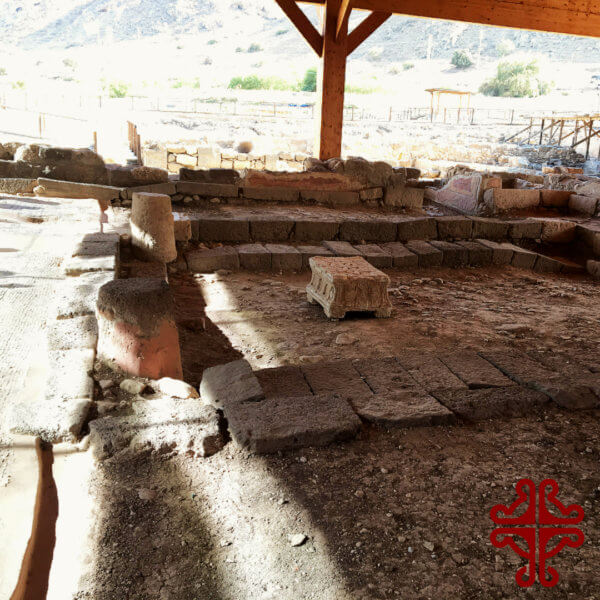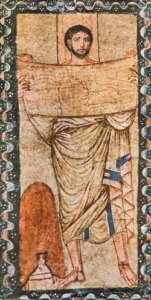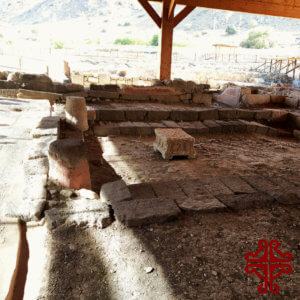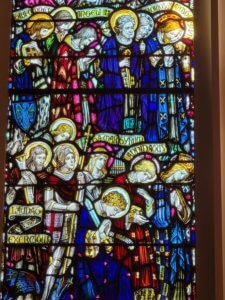
How Do We Respond to God’s Word?
Why did you come to church today? Why did any of us come to church today — in person in the pews here, or if you have reasonably decided that distance, schedule, or your own health profile makes it wiser for you to be with us online (and welcome to all of you who have joined us online!)
First, to join together in community. And second, to hear and respond to God’s Word. God’s people have been doing that for millennia, and we have three readings today showing us how we as God’s people, hear and respond to God’s Word. One of the first things I notice when I’m trying to understand what God is revealing to us through scripture is whether — and which — words are repeated. Especially in a fairly short narrative — where the whole story is told in a few sentences or paragraphs — repeated words or ideas point to what was important in that written experience God’s people had with God.
Inclusive
 In the reading from Nehemiah this morning, there are some key takeaways: first, and most important, the religious gathering was inclusive. We are told no fewer than SEVENTEEN TIMES in that short reading that ALL the people of Israel were gathered together in that moment. In fact, that short passage even specifies what ALL the people of Israel means not once but TWICE: the assembly includes both men and women and all who could hear with understanding. No line is drawn by gender, age, or economic or religious status in the community. Everyone is welcome. The only qualification is that the listeners must be able to hear with understanding.
In the reading from Nehemiah this morning, there are some key takeaways: first, and most important, the religious gathering was inclusive. We are told no fewer than SEVENTEEN TIMES in that short reading that ALL the people of Israel were gathered together in that moment. In fact, that short passage even specifies what ALL the people of Israel means not once but TWICE: the assembly includes both men and women and all who could hear with understanding. No line is drawn by gender, age, or economic or religious status in the community. Everyone is welcome. The only qualification is that the listeners must be able to hear with understanding.
Second, we are told FOUR TIMES in the passage that the people have asked the priest Ezra to read them the law that God gave Moses. And the people, hearing God’s law, respond with awe and wonder. As a lawyer, I often respond with awe and wonder at the law. I know that probably sounds unbelievably nerdy. It’s true that the law creates some prohibitions and barriers, and lots of people — even some lawyers — tend to focus on those.
But finding ways to solve challenges while honoring the boundaries the law specifies is a creative and fascinating challenge. Good lawyers aren’t trying to figure out what you can’t do. They’re in creative overdrive trying to figure out what you can do — and how! No wonder that Nehemiah the governor and Ezra the priest tell the whole community — women, men, and all people who can understand — to celebrate when God’s law is read. Nehemiah and Ezra tell them to go feast on great food and fine wine, because this day is holy.
Liturgy of Reading God’s Word
And notice the liturgy of the reading of God’s word. The reading tells us that the priest stands where all the people can see and hear God’s word, and when the priest opens the book in the sight of all the people, they all stand up and listen closely. Then the priest blesses the Lord, and all the people say Amen Amen, lifting up their hands. Then the priest interprets the law of God so that the people can understand the reading. This description in Nehemiah sounds to me like the blueprint for our Liturgy of the Word — the readings, the proclamation of the Gospel, and the interpretation of the readings through the sermon to put them in context in our lives in community.
 Luke’s gospel gives us another view into the Liturgy of the Word, showing us with Jesus reading God’s Word during worship in a first century Nazareth synagogue, instead of Nehemiah’s 5th century BCE Jerusalem. While I was living in Jerusalem, our pilgrimage groups visited the 4th century synagogue in Capernaum every couple of weeks. I often saw Jewish groups visiting the synagogue, and more than a few times, I heard their English speaking rabbis or guides read the passage from Luke’s gospel we read this morning to help them put the architecture of the synagogue in context with their own worship at home. Remember that an attendant brings Jesus a scroll, which Jesus unrolls to find and read the passage from Isaiah. We can understand from that reading that the scroll is kept in a specific place — the Ark — and that to be unrolled and read, it must rest on a surface, and the remains of a bimah, the place where the Torah is placed for reading, can also be seen there.
Luke’s gospel gives us another view into the Liturgy of the Word, showing us with Jesus reading God’s Word during worship in a first century Nazareth synagogue, instead of Nehemiah’s 5th century BCE Jerusalem. While I was living in Jerusalem, our pilgrimage groups visited the 4th century synagogue in Capernaum every couple of weeks. I often saw Jewish groups visiting the synagogue, and more than a few times, I heard their English speaking rabbis or guides read the passage from Luke’s gospel we read this morning to help them put the architecture of the synagogue in context with their own worship at home. Remember that an attendant brings Jesus a scroll, which Jesus unrolls to find and read the passage from Isaiah. We can understand from that reading that the scroll is kept in a specific place — the Ark — and that to be unrolled and read, it must rest on a surface, and the remains of a bimah, the place where the Torah is placed for reading, can also be seen there.
Interpreting God’s Word
And the Apostle Paul is our preacher today, interpreting the Word of God in context for the people of Corinth so they can hear and understand. Paul underscores the point Nehemiah makes about the inclusiveness of God’s Word: everyone is welcome in God’s community. There is no line or exclusion drawn by gender, age, ability, or economic or religious status. We’re ALL included — Jews or Greeks, slaves or free. Another of Paul’s letters specifically says that God’s community makes no distinction between men and women in terms of inclusion.
 So how do we respond this day, at Emmanuel, to God’s Word? Paul makes it clear that we’re all part of the body, each with our own role and unique abilities. How do we — as members of the body — follow the cross out into the world? COVID cases in the Northeastern states have just begun to drop over these past few days, just as Emmanuel Church is in the process of submitting grant applications for major repairs and renovations we need — to the roof, to the stained glass windows in the chapel, and to our heating and ventilation system.
So how do we respond this day, at Emmanuel, to God’s Word? Paul makes it clear that we’re all part of the body, each with our own role and unique abilities. How do we — as members of the body — follow the cross out into the world? COVID cases in the Northeastern states have just begun to drop over these past few days, just as Emmanuel Church is in the process of submitting grant applications for major repairs and renovations we need — to the roof, to the stained glass windows in the chapel, and to our heating and ventilation system.
And even with those big capital needs that are beyond our grasp without help from grants, we have the history of Christ’s body here at Emmanuel Church — each of us with our unique abilities and dreams, all part of the body and part of imagining our next steps. Our collaboration with Newport Classical has brought abundant life, with musical collaboration and inclusive programming even on this day, from Newport Classical’s first ever year-round Chamber Series in the Recital Hall at Emmanuel Church.
What if we begin to imagine using the space out on the church lawn during summer months, when there is a lot of foot traffic, for classical performance and yoga, for example? What if we built on Soup’s On, continuing that program with our newly renovated kitchen to include serving food where people are hungry — maybe even with a food truck? What if we imagined pop up subscription dinners in the Library, using our renovated kitchen and Annie Guinan’s catering gifts to create a new center of life, warmth, and hospitality in the community? What if we planned programs or retreats over a weekend, using Emmanuel as the center for speakers or programs, concerts, and meals, gathering groups for significant conversation and growth?
Are there difficulties and challenges in these ideas? Of course there are, but let’s figure out how to grow as God invites and guides us, instead of why not. And then, as Ezra the priest reads from the Book of Nehemiah, we should dine on great food and fine wine, because this day is holy.
The Word of the Lord.
Thanks be to God.
Amen and Amen
